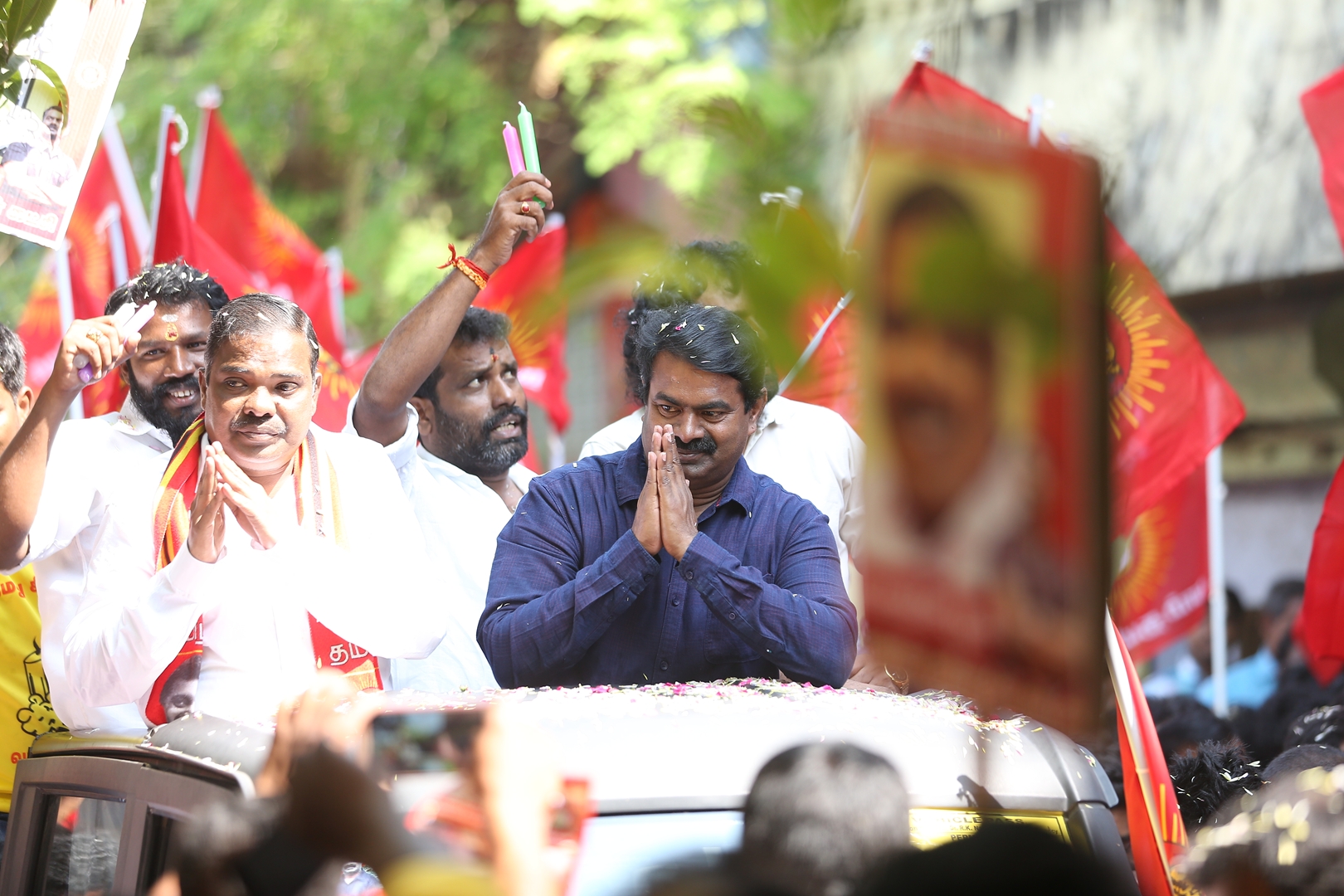
Tamil nationalist gains ground in polls, but is the surge sustainable?

Result of the 17th Lok Sabha elections seems to have given Seeman’s Naam Tamilar Katchi (NTK) a shot in the arm. Once considered a fringe group, the NTK has forced one and all to take note of it by its performance — the party boasts of a 3.89 per cent vote share with 16.45 lakh votes.
When the party contested the 2016 Assembly election — its debut — it garnered around 4.5 lakh votes and gained a vote share of 1.1 per cent. It fielded candidates in all the 234 constituencies. In 2019 Parliamentary elections, too, the party contested independently in 37 seats (the nomination of its candidate was rejected in Nilgiris).
In both the Lok Sabha elections and the bypolls, the party secured third and fourth places in several constituencies, thereby giving the Amma Makkal Munnetra Kazhagam (AMMK) and the Makkal Needhi Maiam (MNM) a run for their money.
Setting a precedent, the NTK allotted 20 seats to women. Kaliyammal, who contested the Chennai North constituency, got 6.33 per cent (highest among NTK nominees) of the votes.
Comparisons are made between the NTK, which has been in the political arena for almost a decade, with the 14-month old MNM, which secured 3.72 per cent of the vote share. “It is wrong to compare MNM with NTK because what Kamal Haasan plays is ‘Kejiriwalism politics’. He stresses only on anti-corruption. But what Seeman bats for is ‘Tamil identity’” says advocate Johnson, who is associated with the NTK.
“Today, nationalism has come to occupy centre stage in many parts of the world. In Tamil Nadu, only Seeman sounds nationalistic and hence considered a ‘voice of Tamils’. His criticism of Modi got overshadowed by his Tamil nationalist views,” he adds.
S Kalyanasundaram, the NTK candidate who contested from Coimbatore Lok Sabha constituency, says that the party has witnessed a four-fold increase in the vote share within three years (between 2016 and 2019).
“We expect to have better numbers in the next Assembly polls,” he says. On the comparison between the NTK and the MNM, he says the latter performed well because of the ‘star value’ of Kamal Haasan. “However, MNM performed well only in certain urban pockets. But the NTK has a widespread mark. We performed well both in the rural and urban areas. Also, the NTK will never go into a coalition with anyone. But we cannot expect the same with the MNM,” Kalyanasundaram adds.
Speaking to The Federal, P Ramajayam, Assistant Professor, Centre for Study of Social Exclusion and Inclusive Policy, Bharathidasan University, says that the vote share of the NTK should not been seen as an indicator of its growth in the state. “The votes they got were the votes that split from the AIADMK. Even though we perceive the vote share as its growth, it is doubtful whether the growth is sustainable,” he says.
Stating that the content of Seeman’s speech is ‘absurd’ and borders on ‘vulgarity’, Ramajayam says the party’s neglect of Dravidian parties and their ideologies shows that they have scant understanding of the contribution of the latter to the state.
“The NTK also neglects Periyar’s ideologies. From this it is understood that the party is built on caste-based Tamil nationalism. If one carefully looks into the campaigning style of Seeman, one will see that his speeches had particular caste shades, in tune with the constituencies he was campaigning in. First-time voters who voted for the NTK are attracted by ‘caste-centred politics’ and they are the ones who stand behind Seeman,” says Ramajayam, who is also a state coordinator with Lokniti-Programme for Comparative Democracies at the Centre for the Study of Developing Societies.
So, how can the NTK sustain its growth and electoral performance? “Be sensitive and be real. Speeches alone will not bring success,” adds Ramajayam.

